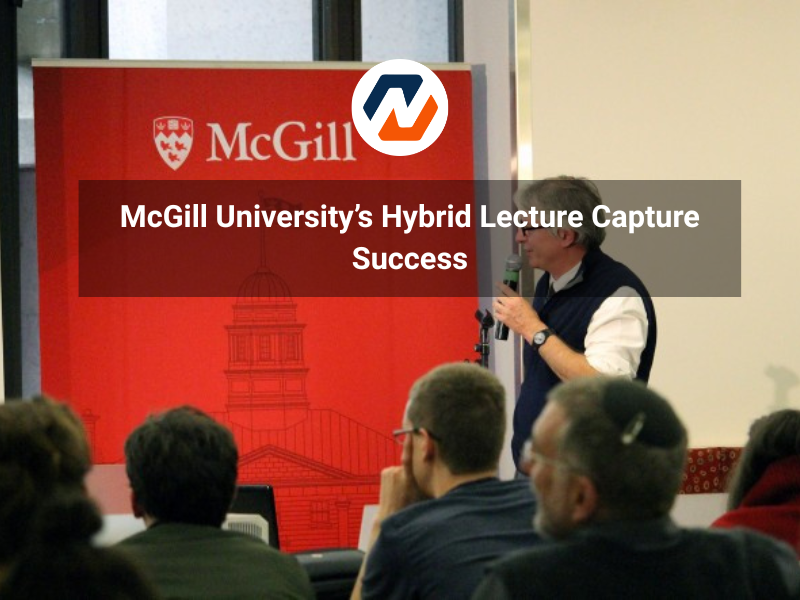admin2025-10-06T14:15:26+00:00
Table of Contents
ToggleIntroduction
McGill University, one of Canada’s leading research institutions, faced a challenge familiar to many universities in 2024: how to deliver equal learning opportunities to both in-person and remote students.
The university sought a solution that would not only stream lectures in real-time but also capture and store them for on-demand access. By upgrading its classrooms with hybrid-ready AV and lecture capture systems, McGill achieved measurable results: 29% fewer missed learning gaps and 41% higher student satisfaction scores.
The Challenge
McGill’s faculty and students experienced:
-
Inconsistent Learning Access – absent students had no way to review missed lectures.
-
Hybrid Inequity – remote students felt disconnected from classroom interactions.
-
Faculty Strain – professors struggled to manage both live teaching and digital delivery.
-
Limited Collaboration Tools – whiteboards and single cameras weren’t effective for STEM-heavy courses.
The Solution: Hybrid Lecture Capture AV Systems
McGill implemented state-of-the-art lecture capture solutions across several faculties, including medicine, engineering, and business.
Core Features Installed:
-
Dual Displays – one for content, one for remote students.
-
AI-Powered Cameras – auto-tracking instructors and students asking questions.
-
Beamforming Ceiling Microphones – ensuring every question was captured clearly.
-
Interactive Smartboards – replacing traditional whiteboards with real-time annotation.
-
Cloud Lecture Capture – automatically storing classes in McGill’s LMS for student access.
The Results
Within one academic year, McGill University reported:
-
29% reduction in missed learning gaps – students could review recorded lectures anytime.
-
41% improvement in student satisfaction scores, particularly among international and remote learners.
-
35% higher engagement in STEM courses, where lecture capture allowed detailed review of complex content.
-
Faculty Adoption Success – 84% of professors surveyed said the new systems were “easy to use and time-saving.”
Key Benefits of Lecture Capture for Universities
-
Equity in Learning – remote and on-campus students received the same access.
-
Improved Retention Rates – recorded sessions reduced dropouts in challenging courses.
-
Global Reach – international students were more likely to choose hybrid-ready institutions.
-
Faculty Efficiency – professors spent less time repeating material for absent students.
-
Scalability – one system could serve hundreds of students across multiple campuses.
Education Trend: Lecture Capture as the New Standard (2025)
-
72% of Canadian universities plan to expand lecture capture systems by 2026 (Education AV Canada Report, 2025).
-
Institutions offering hybrid lecture recordings report 23% higher enrolments from international students.
-
Faculty adoption rates increased 32% year-over-year, showing strong acceptance of AV solutions.
Conclusion
McGill University’s case study highlights a powerful truth: hybrid-ready lecture capture AV systems are no longer optional—they’re essential for modern education in Canada.
By investing in dual displays, AI cameras, and cloud recording, McGill achieved:
-
29% missed learning gaps
-
41% student satisfaction
-
35% engagement in STEM courses
The future of Canadian education is clear: hybrid-first classrooms that ensure every student, whether in Montreal or remote Ontario, has access to world-class learning.

